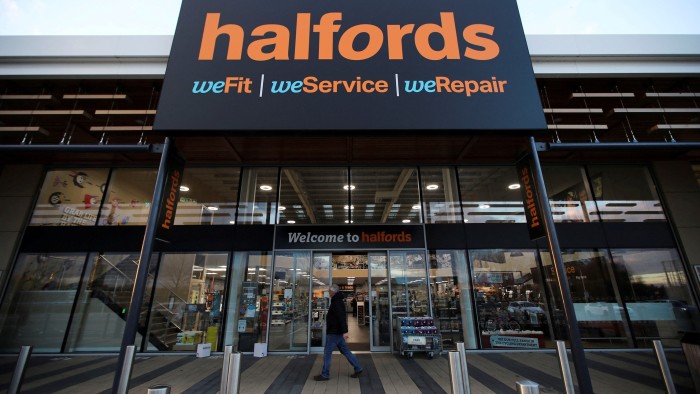Halfords warns on profits after staff shortages take toll

Roula Khalaf, Editor of the FT, selects her favourite stories in this weekly newsletter.
Halfords has sounded the alarm on profits, blaming lingering staff shortages and weaker demand for high-ticket items, sending the shares down 20 per cent.
The bike and car parts seller said it now expected underlying profit before tax to be between £50mn and £60mn in 2023, down from previous estimates of £65mn to £75mn.
“Like many businesses, one of the biggest challenges we face is recruitment,” chief executive Graham Stapleton said in a statement. “Put simply, we can’t get enough qualified technicians into our garages to meet demand.”
The shortages “will limit growth of higher [profit] margin sales” in the next few months, Halfords warned. It previously said that it was aiming to fill 1,000 roles by offering apprenticeships to retirees who quit during the pandemic.
UK businesses are struggling to recruit and retain enough workers, many of whom have decided not to return to the workplace post-lockdowns. Early retirement by people who could afford it has been the main reason for the shortage of workers in the UK, according to a report by the House of Lords economic affairs committee published before Christmas.
The unemployment rate in the UK increased to 3.7 per cent in the three months to October, according to the Office for National Statistics.
Halfords’ warning came as it reported revenue growth of 21.7 per cent in the 13 weeks to December, boosted by sales in the motoring categories and other “needs-based” items.
However, the retailer said sales were hampered by a slump in demand across its cycling and tyres business.
Consumers have been cutting down on pricier, discretionary items as they tighten their belts during the cost of living crisis. While sales of children’s bikes were up 4.6 per cent year-on-year, adult bikes were down 12 per cent.
“The services element is, in theory, more needs-based rather than pure discretionary, and that should be helpful longer-term,” said Liberum analyst Adam Tomlinson.
“But what we’ve actually seen is, the business is still exposed to higher-ticket discretionary elements of retail, including bikes, and tyre replacements . . . these segments are suffering in the current consumer downturn.”
Comments